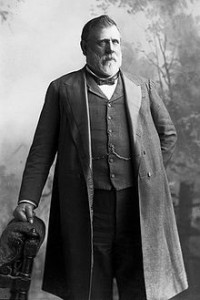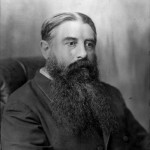4: Ah Foo’s Plans for Citizenship

Ah Foo waited in a small meeting room for almost 3 hours at the Otago council office in Cromwell until finally the council’s lands and surveys officer returned. He had with him a tall bearded man whom he introduced as John Tucker. John identified himself as being the Otago Regional Immigration officer and entered the room with a file of papers firmly tucked under his arm. “It seems” he said “we have a problem with your lack of immigration papers”. Ah Foo explained his arrival into New Zealand and begged for forgiveness for having spent almost 11 years in New Zealand illegally. The Immigration Officer studied the history of Ah Foo’s stay in New Zealand and was impressed with the achievements that Ah Foo had made, and the references from some of the prominent business people of the region. However it was his duty to notify the Immigration Office in Wellington that Ah Foo was illegally in New Zealand and to allow an assessment to be made of what steps would be taken against him.

John Tucker’s notes showed he spent many hours that evening deciding how to handle this case. He had been involved with a small number of illegal Chinese immigrants previously but these had been low skill workers and the process had simply been to arrange for their deportation. However this was different. He considered Ah Foo’s ability to organize labour and his commercial skills may help alleviate some of the labour issues in the region and despite knowing there would be resistance from the local Council, decided to sponsor Ah Foo’s efforts to become naturalized. How to do that, however, was not going to be so clear.
The next morning John Tucker spent several hours with Ah Foo completing a number of formal papers and a written submission that would be presented to the Immigration Assessment office in Wellington. He was hopeful that following some of the skills guidelines in the revised Immigration Act of 1871 would fit Ah Foo’s case – despite his origin and having already settled in New Zealand. The Immigration Act was designed to provide central government the power to act independently of the regions in encouraging immigration from England – offering assisted or free passage and land grants to immigrants. Laborers, mechanics, small farmers, and “capitalists” were the profile being sought under the act to stabilize the country and provide more security in maintaining peace with the indigenous Maori people in the North Island. Fitting Ah Foo into this category was going to be a test of the system, after all this was not the North Island, Ah Foo was not English and he really did not fit as one of the prescribed categories. Ah Foo knew he was at risk of being deported if the process was not successful but was thankful that John Tucker was prepared to argue the case that Ah Foo was a valued business driver in the Otago region. He was not seeking passage and was in fact prepared to pay for the land he wished to acquire. However the Immigration Assessment office would need to be convinced of this.
Ah Foo returned to Welshtown to wait for news. His business was still quite strong but he could see a slowing of the gold mining and fossicking for gold had started to replace real commercial production as seams ran out and mining companies closed down. His workforce dwindled to a small number of the more hardy Chinese gold-miners. His business started to become an equipment exchange as well as a labour exchange. Pieces of mining equipment and tools were being abandoned as mining companies withdrew from the area. Ah Foo used some of his labour to find, sort and repair some of the smaller items and tools, and was able to offer some bargains for those who continued to mine.
Almost three months passed without word from Cromwell. He felt at the same time relieved that he had not been arrested and deported, but also concerned at the lack of a positive outcome from his submission to get immigration papers. In early June of 1873 Ah Foo returned to Cromwell to speak to John Tucker and see what progress was being made. His arrival timed with the an announcement that yet another amendment had been made to the Immigration Act which now offered free passage for immigrants from England. John Tucker had been called to Alexandra for a meeting on changes to the Act and was not due back in Cromwell for several days. Ah Foo remained in Cromwell but began to notice a shift in the mood that he had hoped would allow him to remain. More now he saw signs that his plans to reside in the town were not going to materialize.
